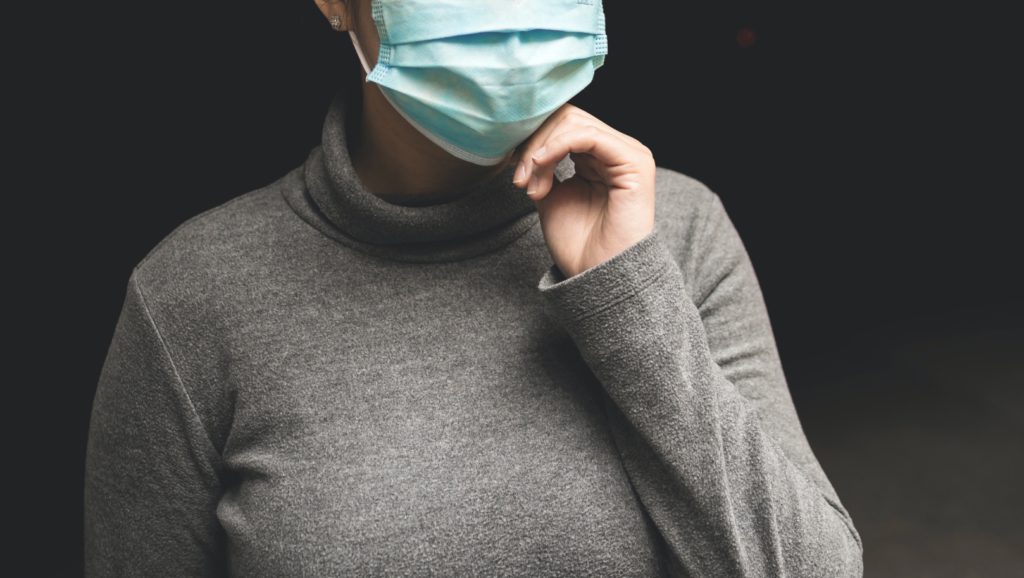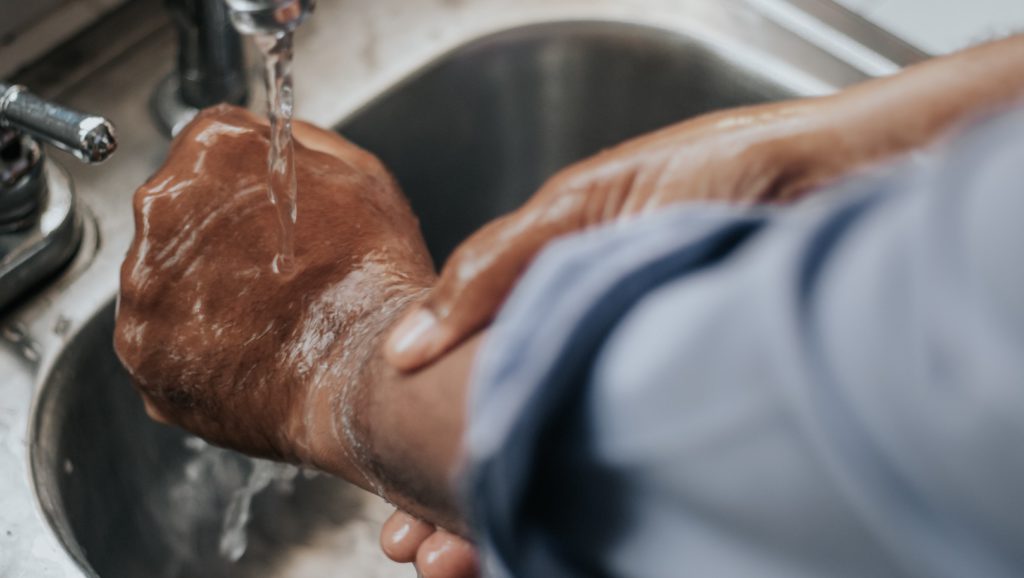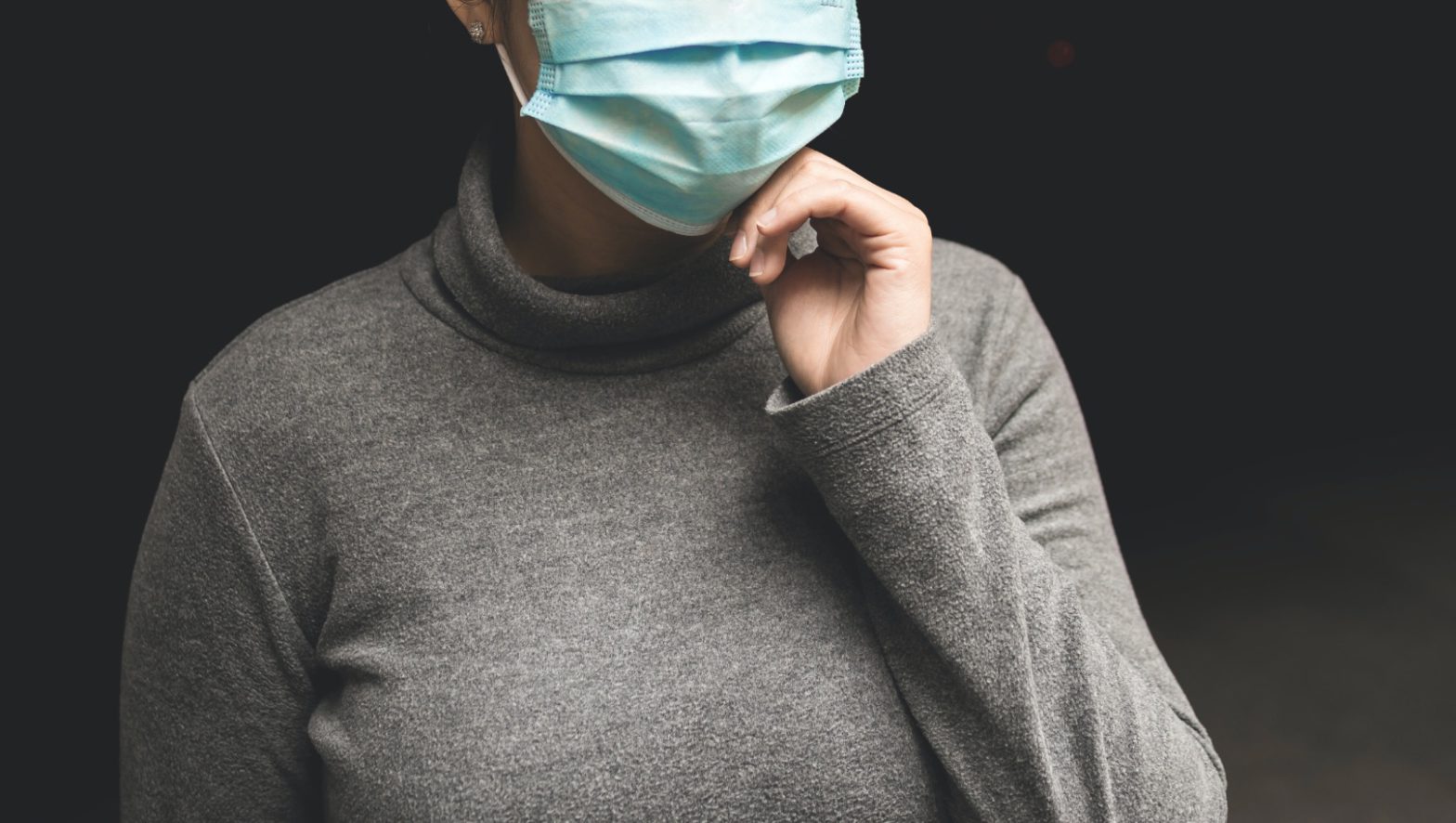In these unprecedented times, every health organization in the world recommends wearing a face mask and social distancing to help reduce the risk of spreading airborne germs (via talking, coughing, or sneezing).

The Centers for Disease Control and the National Institutes of Health also recommend washing your hands vigorously with soap and water for at least 20 seconds, or using an alcohol-based hand sanitizer, to further reduce the risk of “cross-transmission” — or, spreading viruses and bacteria by physically touching something and passing those germs onto someone else, or being exposed to them yourself.
You should always, always, always clean your hands after visiting a public place, coming into contact with someone who may be sick, and before eating or preparing food.
According to the CDC, these are four of the biggest reasons why hand-cleaning is so important for reducing the risk of infection:
- Germs can enter your body through your eyes, nose, and mouth. (Keep in mind: the average person touches their face 16-20 times every hour.)
- Germs from unwashed hands can be passed on to other objects. Just think about how many door handles, elevator buttons, handrails, and even loose coins you come into contact with each day. They’re all potential germ carriers.
- Germs can transfer through food and drink, as well as the containers and wrappers they’re served in.
- Some dangerous germs can survive for several days on certain surfaces.

What’s Better: Washing with Soap and Water or Using a Hand Sanitizer?
The short answer: Either option is better at limiting the spread of germs and viruses than doing nothing at all.
The long answer: The CDC recommends handwashing with soap and hot water as your first choice of protection, because soap kills most germs, bacteria, and viruses … and actually cleans them off your hands and fingers. Hand sanitizer may kill viruses and bacteria too, but it doesn’t wash them off your hands like soap and water does.
Think of it like this: Hand sanitizers are fine as an on-the-go alternative to using soap and water — just make sure that sanitizer is 60-95% alcohol-based.
Here’s a few more reasons why soap and water beat out hand sanitizers as the preferred choice for staying healthy:
- Hand sanitizers can sometimes be used incorrectly (typically, not using enough for the whole hand, or wiping hands dry too soon). This can leave germs on the skin.
- Hand sanitizers are less effective if hands are dirty or greasy (even grease from French fries, pizza, and other foods). Germs can hide out in the grime.
- Hand sanitizers may simply reduce the growth of germs…and not eliminate the germs.
To sum it all up: Keep your hands clean as often as you can, especially when returning home from a public place. Wash hands thoroughly with soap and water for at least 20 seconds. If a sink or bathroom isn’t accessible, use a hand sanitizer and A) pour a hefty amount onto your palms, B) lather every part of your hands and fingers, and C) don’t pat-dry hands … let them dry on their own.
We hope this helps you stay safe!
~ Your NatureM.D. Wellness Team


